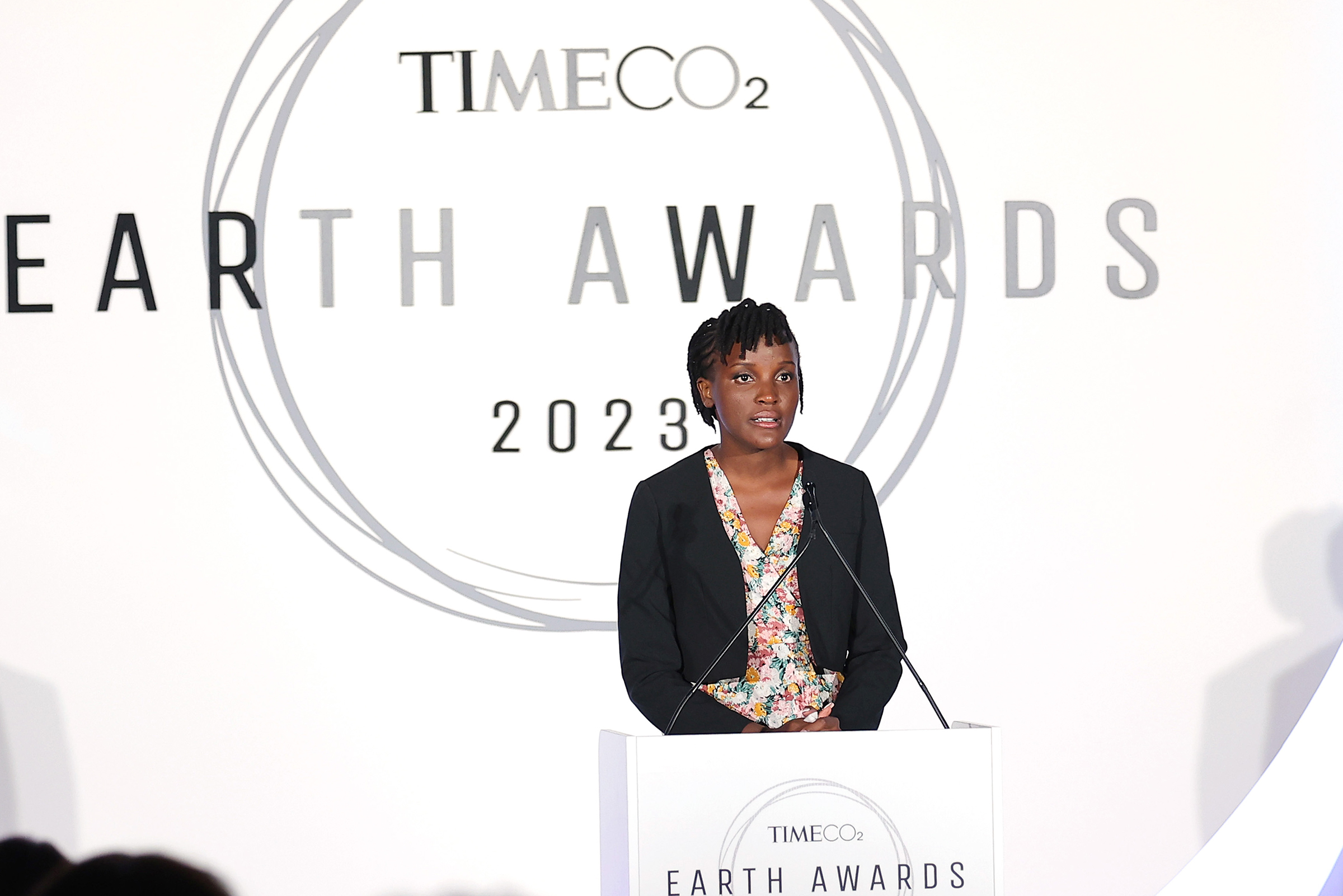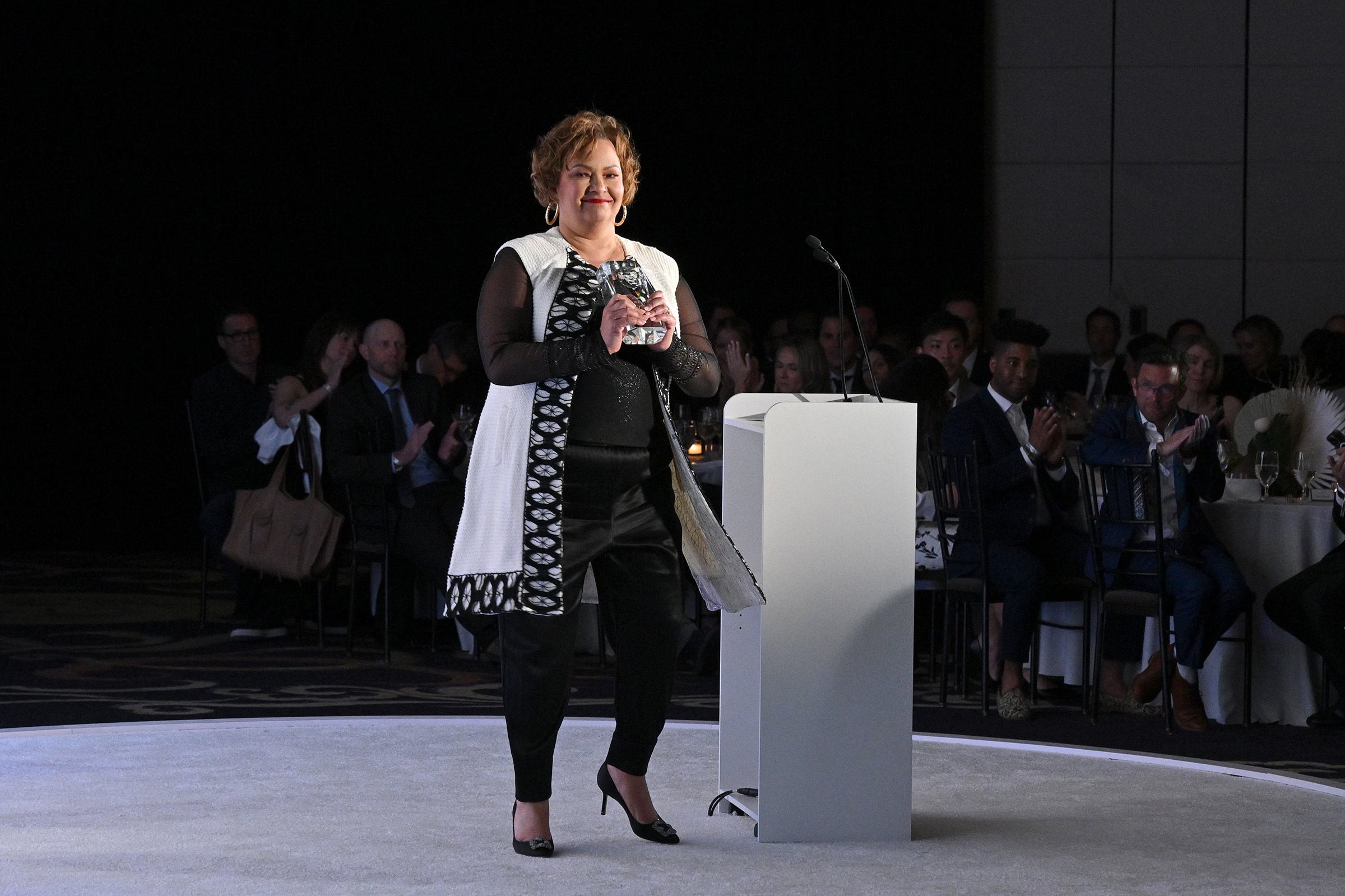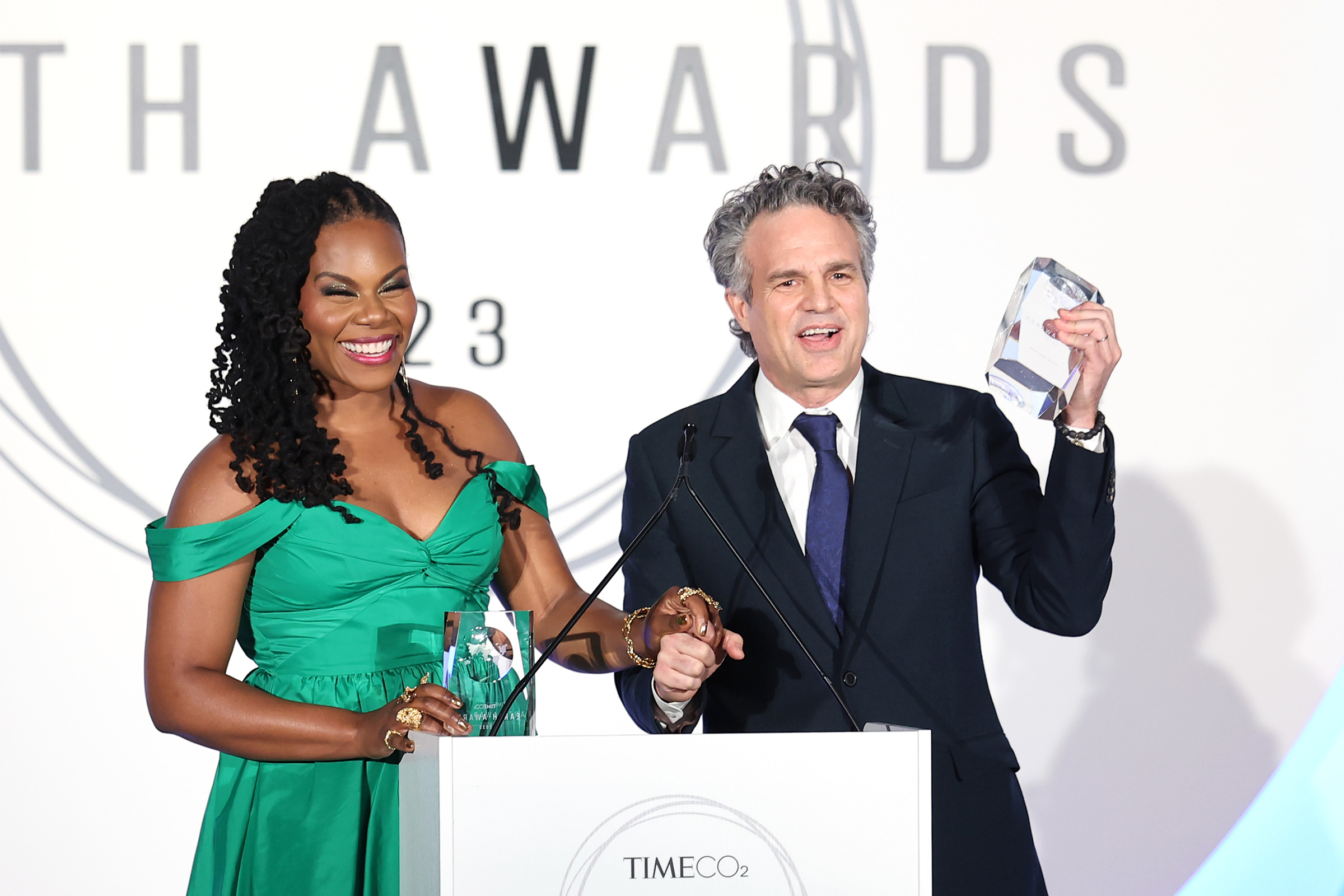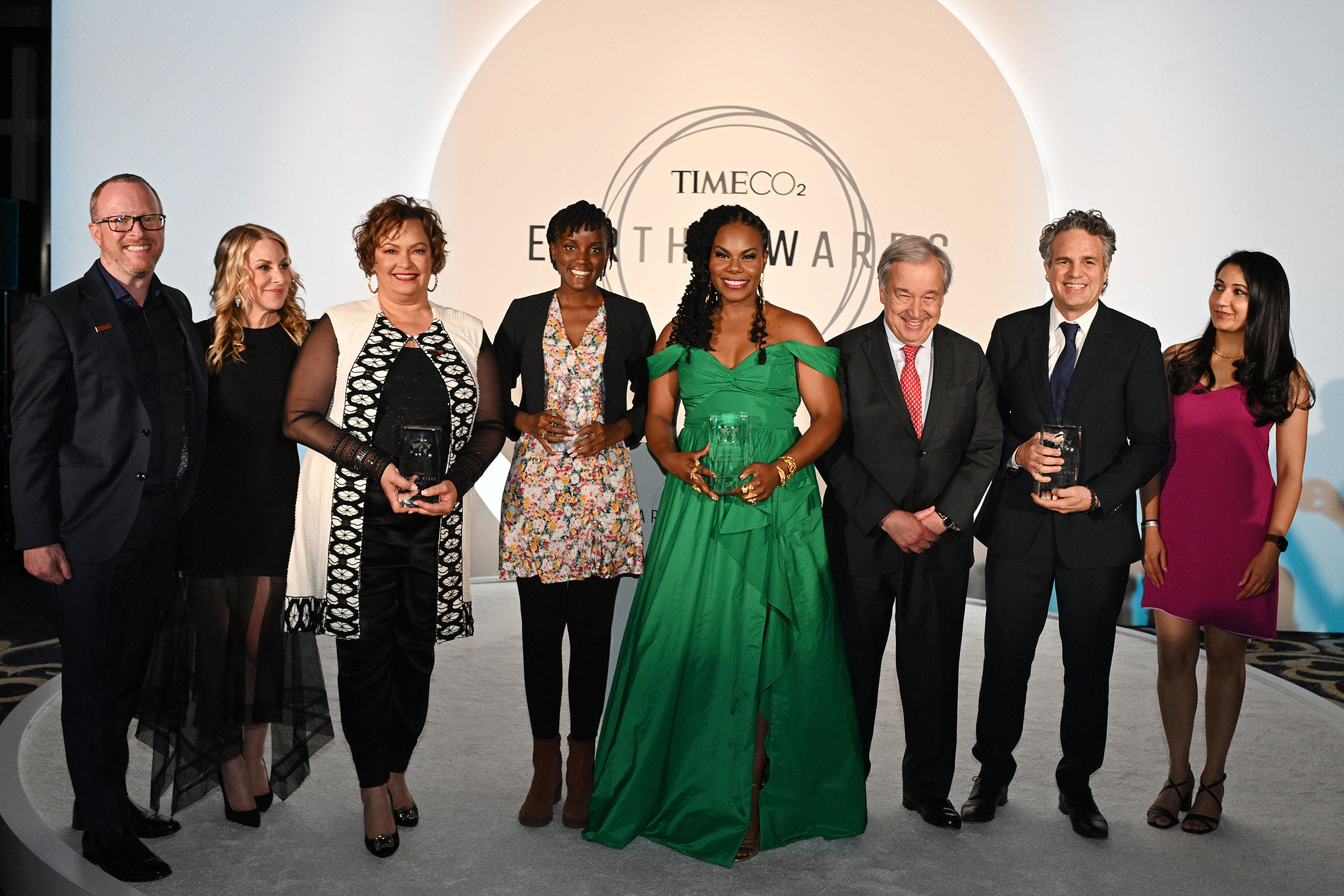On Tuesday night, some of the most influential leaders in the fight against climate change were honored at the inaugural TIME Earth Awards—a collaboration between TIME and TIME CO2, a platform for climate action. At the event held in the Mandarin Oriental Hotel in New York, five awardees were recognized for their work against the climate threat, using activism, diplomacy, and business to try to change the world’s emissions trajectory before it’s too late.
The awardees were: António Guterres, the United Nations Secretary-General, who has made his position synonymous with climate action, continuously pushing national leaders to raise their climate ambition and refusing to mince words in laying out the urgency of the climate crisis; Vanessa Nakate, a young climate activist from Africa and founder of the Rise Up Movement, who has become one of the most powerful voices calling to rapidly transition the global economy away from fossil fuels; Lisa P. Jackson, former administrator of the U.S. EPA, who has worked for the past ten years trying to make Apple, the world’s most valuable company, more sustainable; and organizer Gloria Walton and actor Mark Ruffalo, who have joined forces in leading the Solutions Project, working toward the twin goals of emissions reductions and racial equity.
“Tonight we’re going to honor five incredible leaders who really embody the intensity and purpose and commitment to our planet as well as the people, and that’s the commitment that frankly everybody needs to have if we are to have any chance of combating climate change,” said TIME’s President of Sustainability Simon Mulcahy, in the event’s opening address. “We really hope these Earth Awards leaders inspire people around the world to step up.”
During the event a new partnership was announced between TIME CO2, the B Team, a global collective of business and civil society leaders, and climate organization, Global Optimism. Speaking on stage, founding partner of Global Optimism, Tom Rivett-Carnac, said that the partnership will “showcase and elevate leadership,” on climate change.
At the event, the speakers highlighted that failure to act sufficiently on climate change will hit the developing world especially hard, where many people will face the harshest effects from droughts, floods, fires, and other impacts. “People living in vulnerable communities—particularly in the Global South—have done little if nothing to cause the climate crisis,” said Nakate. “And yet they are paying the ultimate price.”
The speakers at the event also stressed that no matter how bad the situation seems, giving up the work of battling climate change is not an option. There were calls for action—for people everywhere to increase the pressure for rapid systemic change to cut carbon emissions and halt temperature rise.
“The powerless[ness] we feel is intentional,” said Mark Ruffalo. “Lobbyists, corporations, corrupt politicians, and those abusing power want us to feel helpless. They want us to give up our fight. Because when we’re helpless, we’re not a threat to the system.”
Here are the biggest moments from the TIME CO2 Impact Awards:
António Guterres delivers a stark warning

Taking the stage to accept his Earth Award, Guterres made clear the seriousness of the current moment. “We are set to increase global temperatures by 2.8 degrees centigrade this century—far more than the 1.5 degree limit on which countries have agreed,” Guterres said. “This spells catastrophe, ecological destruction, poverty and peril for billions, and a death sentence for small island states.”
Read More: António Guterres Attacks the Fossil Fuel Industry at the TIME CO2 Earth Awards
Guterres stressed the disastrous effect such an increase will have on poor people around the world, and laid the blame at the feet of world politicians and fossil fuel corporations. He pointed out that progress is being made—people are becoming more aware of the seriousness of the climate threat, and new cheap renewable energy is finally starting to displace fossil fuels in much of the world.
Still, Guterres said, there is much more work to be done. New coal plants and licenses for fossil fuel extraction threaten to undo much of the recent progress. Ordinary people around the world need to up the pressure on their governments to act, Guterres said. “Now is the time to speak up,” he said. “Tell your governments, your banks, and the businesses you buy from: no more excuses, no more half-measures. We need real climate action now.”
Vanessa Nakate chooses to spotlight others

Nakate took the stage to call for an end to the use of fossil fuels and to highlight the crisis that people who live in the developing world are facing due to climate change. “Awards are an important signal,” she said. “But awards will not save those who are already losing their lives and livelihoods on the frontline of the climate crisis. … We need action.”
Read More: Vanessa Nakate Calls for a Mass Climate Movement at the TIME CO2 Earth Awards
She said that her Earth Award is really meant not only for her but for the climate action movement as a whole. “It is for the millions of people around the world who are holding leaders accountable and calling for climate justice,” she said.
“It is the people who fill the streets and demand change,” she added. “It is the people who face down authoritarian power. It is the people who will hold big oil and gas companies accountable.”
Lisa P. Jackson on hope and urgency

Jackson’s address to the Earth Awards audience centered on the power of hope, as well as its limits. “Hope is the starting line. You can feel hopeful at the starting line. But you’ve gotta run this race,” the former U.S. EPA head said. “ I’ve tried to focus my energy on turning hope into action.”
She spoke about cycles of climate disaster and their effects on minority communities, such as Hurricane Katrina in 2005, which destroyed the house she grew up in. “Time and again, the communities hurt most are the ones who’ve raised the alarm for years, but their voices have been ignored,” Jackson said. “We cannot afford to ignore or to forget, or to put our faith in the idea that progress is inevitable and the next generation will do better.”
Instead, Jackson said, we must pair optimism with urgency and a defined program of action. Apple, she said, has both in its plan to make all its products carbon neutral by the end of the decade. “We do have hope. But more importantly, we have a plan. Hope with urgency. Hope with action.”
Gloria Walton and Mark Ruffalo on remaking philanthropy

Taking the stage to accept a joint Earth Award, Gloria Walton and Mark Ruffalo highlighted the overlapping goals of the climate fight and the struggles for racial justice. “We cannot talk about climate without talking about race,” Walton said. She pointed out the ways that the toxic effects of petrochemical plants disproportionately affect communities of color, and how those groups often are forced to live in places that are more vulnerable to extreme weather and rising seas. She also described how their perspective tends to be left out of conversations on how to address the climate crisis.
“Communities on the frontlines understand that climate justice is racial justice, that climate justice is economic justice, and climate justice is social justice,” Walton said “And while they have been underrepresented and excluded, they are building collective power and responding to the most intersectional issue of our time.”
The pair also talked about the persistent shortage of funding that climate organizations representing those groups are facing. “Those are the people who historically have had to live in red-lined communities. They have been historically unappreciated. Now’s the time to change that,” Ruffalo said. “That’s what we’re here to do.”
“All of us need to do our part,” added Walton. ”Government, business leaders, philanthropists, civil society. We all need to step up, show up, show out … and stand in solidarity with the grassroots.”
The original version of this story misstated the last name of one honoree. She is Gloria Walton, not Jackson.
- Why Biden Dropped Out
- Ukraine’s Plan to Survive Trump
- The Rise of a New Kind of Parenting Guru
- The Chaos and Commotion of the RNC in Photos
- Why We All Have a Stake in Twisters’ Success
- 8 Eating Habits That Actually Improve Your Sleep
- Welcome to the Noah Lyles Olympics
- Get Our Paris Olympics Newsletter in Your Inbox
